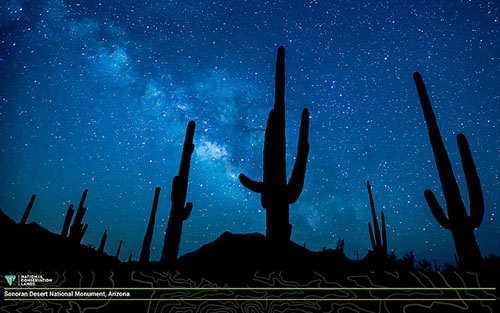Edward Abbey and Exclusionary Conservation on the Borderlands
Abstract
American environmentalists have long held Edward Abbey in high regard for his provocative and polemic writing. His unapologetic style and prominent position in the canon of American nature writers has been heralded as a leading response to institutionalized exploitation of the natural world.Yet Abbey’s abrasive disposition and radical politics have earned him many detractors and critics. While his writing was often intentionally confrontational, his views on immigration reform proved too inflammatory for many when they first appeared to a mass audience in his 1988 book One Life at a Time, Please. For Abbey, the human consumption of natural resources was exacerbated by overpopulation. Unchecked immigration led to a higher percentage of people settling in the Borderlands region of the American Southwest that Abbey revered and thus led to the overconsumption he wished to avoid. In Desert Solitaire, one of his most popular works, the author advocates against further development of national parks so that they may be kept remote and pristine.
While I intend to show how his anti-immigration viewpoint is faulty on its own, when read with his earlier work on conservation it becomes even more problematic. The proposed Secure Our Borders First Act (HR399) that is moving through the U.S. House of Representatives highlights why the problems and contradictions running throughout Abbey’s work are still at the forefront of conservation and border issues. HR399 proposes massive “improvements” to national parks within 100 miles of the U.S./Mexico border in the hopes that will curb immigration through these wilderness spaces. This paper will seek out why conservation has changed from a democratic ideal into a process that actively works to exclude populations seen as undeserving.References
Abbey, Edward. Desert Solitaire: A Season in the Wilderness. New York: Random House, 1968. Print.
---. “Immigration and Liberal Taboos.” One Life at a Time, Please. New York: Henry Holt and Company, 1988. 41-44. Print.
Doty, Roxanne Lynn. "Desert Tracts: Statecraft In Remote Places." Alternatives: Global, Local, Political 26.4 (2001): 523. Academic Search Complete. Web. 19 Jan. 2015.
Lynch, Tom. “Nativity, Domesticity, and Exile in Edward Abbey’s ‘One True Home.’” Coyote in a Maze: Tracking Edward Abbey in a World of Words. Ed. Peter Quigley. Salt Lake City: Utah University Press, 1998. 88-105. eBook Collection (EBSCOhost). Web. 18 Jan. 2015
McCaul, Rep. Michael. “McCaul to Introduce Secure Our Borders First Act.” Homeland Security Committee, 15 Jan. 2015. Web. 20 Jan. 2015.
Quigley, Peter. “Introduction: Heraclitean Fire, Bakhtinian Laughter, and the Limits of Literary Judgement.” Coyote in a Maze: Tracking Edward Abbey in a World of Words. Ed. Peter Quigley. Salt Lake City: Utah UP, 1998. 1-17. eBook Collection (EBSCOhost). Web. 18 Jan. 2015
Ray, Sarah Jaquette. “Endangering the Desert: Immigration, the Environment, and Security in the Arizona-Mexico Borderland.” ISLE: Interdisciplinary Studies in Literature and Environment 17.4 (2010): 709-734. Print.

Published
Issue
Section
License
AE: A Journal of Literature, Community and the Natural World, as an open access journal, makes the full text of its published articles universally and freely available online. While many open access journals, including AE, employ Creative Commons licenses (https://creativecommons.org), authors may assign a more or less restrictive CC license than the journal or assert full copyright protection.
AE: A Journal of Literature, Community and the Natural World Policy: Copyright for items published in this journal is retained by authors/creators. Works are also licensed under Creative Commons Attribution License International 4.0: Attribution - Non-Commercial - No Derivatives.
